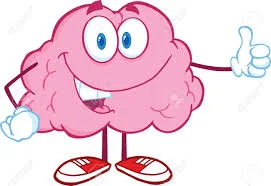Flowery
language is:
‘designed to have a persuasive or impressive
effect, but which is often regarded as lacking in sincerity or meaningful
content.’
Dr. Albert Ellis was an efficient
person by all accounts and was careful to say what he meant in his writing
without employing unnecessary hyperbole or using grandiose and convoluted ways
to impress his audience. He didn’t need to nor did he want to.
Einstein
said if you can’t explain something in simple terms you may not understand it.
He encouraged people to:
“Make things as simple as possible, but no
simpler.”
This is not as easy as it
sounds and requires effort and consideration.
Schmaltz is another term
that comes to mind to describe language used to ingratiate oneself with others;
to over empathise. Sentimentality overload!
What can be the purpose of
these flowery utterances in an REBT sense? What would Dr. Ellis make of those inclined
to fawn over and to flatter others excessively? At which point does the message
become meaningless and insincere?
Fawning
is the:
‘use of people-pleasing to diffuse conflict,
feel more secure in relationships, and earn the approval of others.
The latter, to earn the approval
of others, is a salient point to consider in the ‘love
slobbism’ stakes. Dr. Ellis’ principle of unconditional self-acceptance describes
a predisposition to believe that one is worthwhile no matter what. This
psychological bulwark keeps the individual in a state of ‘ ‘OK-ness’ meaning
that if people don’t approve of you or you happen to fail at something your
worth cannot be diminished, unless you allow it to of course!
The ‘flowery fawner’ or the one who characteristically entreats others to like or approve of them via excessive flattery are at risk because when such approval is not forthcoming the subject is rendering themselves psychologically unwell. Why? Because their sense of worth is tethered to how others esteem them. Ellis said:
So look out for this kind of
attitude in yourself or others as you may knowingly or unknowingly be leaning
on others too much for your sense self-worth. Consider the following to keep
yourself sane:
- What am I saying and why am I saying it?
- Do I need the approval of others to be worthwhile?
- Learn to be more self-accepting? How?
- Try new things and test my resilience if I fail or others don’t approve of me.
- Remind myself daily that what I think of myself is more important than what others think.
- Remind myself to care about what others think about me but not to care too much.
Any others?



















